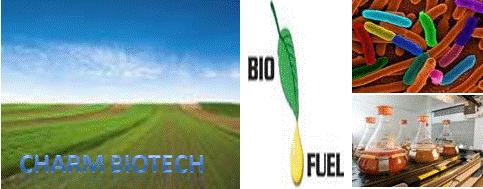
|
|
|
|
|
Charm Biofuel Program |
|
Lignocellulosic biomass is made up with about 50% cellulose, 25% hemicelluloses, and 25% lignin. Efficient degradation of biomass into fermentable sugar is the key limiting factor in biofuel research and application. Charm Biotech has in-depth knowledge in these key areas of biomass degradation. We specialized in enzyme engineering, strain construction and optimization. We welcome collaborations and business development as this is new and evolving field. Our goal is to produce sugar economically by engineer yeasts or other organisms so they can degrade biomass while fermenting sugars into ethanol. We provide services in expression of different types of lignocellulosic degrading enzymes from various fungal/yeast/bacterial sources. We can do codon optimization; provide a selection of secretion signals and terminators for proper expression and secretion. We can also integrate tested expression cassettes into genomic loci for stable integration and expression. 1. Cellulose degradation enzymes The Key cellulose enzymes in cellulose degradation we provide: (1) Endo -1,4 Glucanases (2) Exo -1,4 Glucanases (cellobiohydrolases, CBHs) (3) Beta-glucosidase Applications: Cellulases catalyze the hydrolysis of cellulose. They can be used for commercial food processing in coffee. It performs hydrolysis of cellulose during drying of beans. Furthermore, cellulases are widely used in textile industry and in laundry detergents. They have also been used in the pulp and paper industry for various purposes, and they are even used for pharmaceutical applications. 2. Lignin degradation enzymes The Key enzymes in lignin degradation we provide: (1) Manganese peroxidase (2) Lignin peroxidase (3) Laccase Applications: These lignin-degrading enzymes are key enzymes needed for lignin remove and recycle in nature. They can be used in pulp bleaching, waste water treatment, skin and hair lightening etc. 3. Hemicellulose degrading enzymes The Key enzymes in hemicelluloses degradation we provide: (1) Xylanase (2) β-D-Xylosidase Applications: Xylanase and β-D-Xylosidase are enzymes that can degrade the linear polysaccharide beta-1,4-xylan into its monomer xylose, thus breaking down hemicellulose, one of the major components of plant cell walls. These enzymes can be used for pulp bleaching in place of toxic chlorine compounds. It can also be used in animal feeds to improve sugar content from xylan and used in bakery to increase quality of bread. 4. Other enzymes/proteins we can provide for biomass degradation (1) Ferrulic acid esterase Applications: Ferulic acid esterase is involved in hydrolysing recalcitrant parts of the plant cell wall, the beginning of a process that enables more complete breakdown of fibrous or pectinaceous cell walls and consequently the release of a higher proportion of sugars or cell wall bound flavors. It can be used in fruit juice and vegetable processing. (2) Cold lipase Applications: Lipase is an enzyme that catalyzes the hydrolysis of ester chemical bonds in water-insoluble lipid substrates. Lipases can be used in baking, laundry detergents and even as biocatalysts to convert vegetable oil into fuel. 5. Enzymatic assay to determine activity We have specific assays for each of these enzymes to determine their activities in functional units. 6. Expression systems We can express them in bacterial, fungal, yeast (Saccharomyces cerevisiae), and Pichia expression systems. By adding secretion signal, we can express and secret them in yeast and Pichia culture for direct biomass conversion. We can also use native secretion signal of particularly enzyme if desired. 7. Integration into yeast genome We have specific loci that we can integrate yeast genome for active expression of the target genes. These sites are proven and tested for effective expression and secretion. For more information and price on expression of specific enzyme and strain construction, please call Charm Biotech at 858 882 7701. We will provide services from design of project, gene synthesis, codon optimization, cloning and expression, to activity assay and delivery of integrated strain or expression clones with detailed project report. |
|

Copyright (c) 2008 - 2026 Charm Biotech. All rights reserved.


















 Biofuel
Biofuel